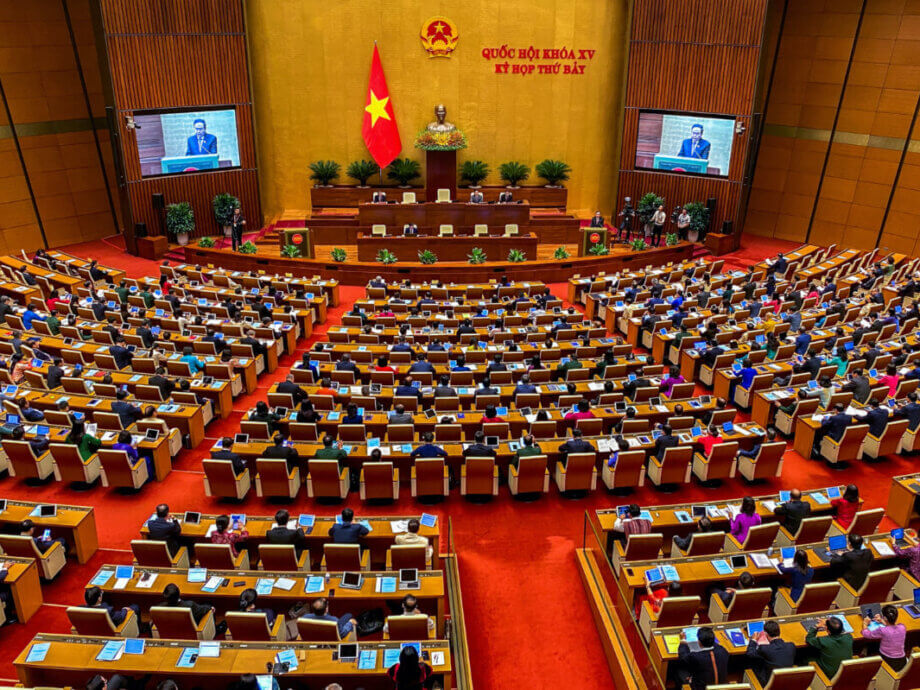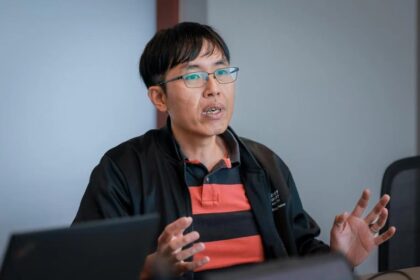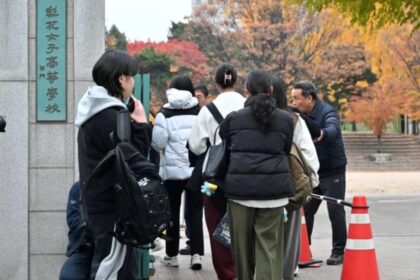Vietnam’s National Assembly Approves Major Reforms: Free Tuition and Agricultural Land Tax Exemption
In a historic move, Vietnam’s National Assembly (NA) has adopted sweeping resolutions that will exempt tuition fees for all public school students and extend agricultural land tax exemptions through 2030. These decisions, passed during the 9th session of the 15th National Assembly, are set to reshape the country’s education and agricultural sectors, with far-reaching implications for millions of Vietnamese families and the broader economy.
- Vietnam’s National Assembly Approves Major Reforms: Free Tuition and Agricultural Land Tax Exemption
- What Do the New Resolutions Entail?
- Why Are These Policies Considered Transformative?
- Extending Agricultural Land Tax Exemption: Supporting Farmers and Rural Development
- How Will These Policies Be Funded?
- Broader Legislative Context: A Push for Socio-Economic Reform
- Potential Challenges and Next Steps
- In Summary
The resolutions, which garnered near-unanimous support from lawmakers, reflect the government’s commitment to social equity, sustainable development, and support for vulnerable populations. They also form part of a broader legislative agenda aimed at unlocking resources and driving socio-economic progress in Vietnam’s new development phase.
What Do the New Resolutions Entail?
The National Assembly’s recent session saw the passage of three key resolutions:
- Tuition exemption for all public school students, from preschool through high school, starting in the 2025–2026 academic year.
- Universal preschool education for children aged 3–5, with nationwide standards to be achieved by 2030.
- Extension of agricultural land use tax exemption until the end of 2030.
These policies are designed to reduce financial burdens on families, promote educational equity, and support the agricultural sector—long considered the backbone of Vietnam’s economy.
Tuition Exemption: Who Benefits and How?
Under the new resolution, all students attending public schools from kindergarten to grade 12 will be exempt from paying tuition fees. The policy also provides tuition support for students at private educational institutions, with the level of support determined by local authorities but not exceeding the actual tuition charged by non-public schools.
This measure is expected to benefit approximately 23 million preschool and general education students across the country. The government has allocated an estimated 30.6 trillion Vietnamese dong (about 1.2 billion U.S. dollars) for the 2025–2026 academic year to implement the tuition waiver, with additional funds earmarked for subsequent years.
Minister of Education and Training Nguyen Kim Son emphasized the urgency and humanity of the policy, noting that it should have been integrated into the amended Law on Education. However, to ensure immediate impact, a separate resolution was passed to allow the policy to take effect from the upcoming school year.
Lawmakers and education experts widely praised the move, highlighting its potential to narrow the educational access gap between urban and rural areas, and between different socio-economic groups. The policy is particularly significant for disadvantaged communities, including ethnic minorities and families in mountainous or remote regions.
Universal Preschool Education: Aiming for Nationwide Access
The second resolution focuses on making preschool education universally accessible for children aged 3 to 5 by 2030. All provinces and centrally-run cities are expected to meet the required standards within this timeframe. The scheme will be funded primarily by the state, with additional contributions from social sources in accordance with legal regulations.
Implementation will follow a roadmap tailored to the socio-economic conditions of each locality, ensuring that all requirements for universalization are met as prescribed by law. Lawmakers stressed the importance of adequate preparation, including investments in infrastructure and teacher training, to ensure the policy’s success.
Deputies also discussed the timeline for implementation, with some suggesting a slight delay to allow for better preparation. However, the consensus was that the tuition exemption should be implemented as soon as possible to maximize its positive impact.
Why Are These Policies Considered Transformative?
The adoption of tuition exemption and universal preschool education is seen as a deeply humane and timely response to the country’s development needs. The policies are expected to:
- Reduce the financial burden on millions of households, especially in the wake of the COVID-19 pandemic and rising living costs.
- Promote fairness between public and private schools, as well as between urban and rural areas.
- Eliminate financial barriers to education, fostering a more equitable and inclusive society.
- Lay the foundation for developing a skilled and competitive future workforce.
Hanoi’s deputy Truong Xuan Cu highlighted the need for public schools to limit the collection of other types of fees, such as those for extra classes or supplementary services, to ensure the spirit of the tuition exemption policy is fully realized.
Addressing Educational Inequality
Vietnam has made significant strides in improving access to education over the past decades, but disparities remain, particularly in remote and ethnic minority areas. The new resolutions are designed to close these gaps by ensuring that all children, regardless of their background, have the right to quality education.
Minister Nguyen Kim Son and other officials have underscored the importance of these policies in meeting the country’s sustainable development goals and in fulfilling the state’s responsibility to care for the younger generation.
Minister of Education and Training Nguyen Kim Son voices the consensus among lawmakers:
“This is a correct, timely, and deeply humane policy, meeting the country’s sustainable development requirements.”
Extending Agricultural Land Tax Exemption: Supporting Farmers and Rural Development
Alongside the education reforms, the National Assembly also passed a resolution to extend the exemption of agricultural land use tax until the end of 2030. This policy, which has been in place for several years, is estimated to save farmers around 7,500 billion Vietnamese dong (approximately 300 million U.S. dollars) annually.
The tax exemption applies to all agricultural land used by households and individuals allocated land by the state for farming, as well as land obtained through inheritance, gifts, or land-use rights transfers. It also covers land assigned to economic organizations, political institutions, and other entities directly engaged in agricultural production.
Minister of Finance Nguyen Van Thang described the policy as a direct form of support for farmers, serving as an investment in the agricultural sector, rural areas, and farmers themselves. The exemption is expected to:
- Expand production scale and improve product quality and productivity.
- Create jobs and improve living standards in rural areas.
- Encourage sustained investment and promote the long-term development of the agricultural economy.
Chairman of the Economic and Financial Committee Phan Van Mai emphasized the need to evaluate the impacts of the tax exemption within the broader context of land-related taxation, ensuring alignment with the newly amended Land Law and the country’s development goals.
Lawmakers also called for measures to prevent abuse of the policy, such as penalties for those who own agricultural land but leave it uncultivated or fail to use it productively.
How Will These Policies Be Funded?
The implementation of these ambitious policies requires significant financial resources. The government has outlined a comprehensive budget plan to support the new initiatives:
- For tuition exemption and support, the estimated annual budget is about 30.6 trillion Vietnamese dong, with 22.4 trillion dong allocated for the 2025–2026 school year and an additional 8.2 trillion dong to fully implement the policy as per the Politburo’s conclusions.
- For universal preschool education, funding will come from the state budget and social contributions, with a roadmap for gradual implementation based on local conditions.
- The agricultural land tax exemption is a continuation of an existing policy and will not reduce current state revenues, as it simply extends the current tax relief through 2030.
The National Assembly has also approved adjustments to the 2025 state budget to accommodate these policies, including reallocating unspent funds from previous years and ensuring strict compliance with spending standards to avoid waste or mismanagement.
Broader Legislative Context: A Push for Socio-Economic Reform
The passage of these resolutions is part of a broader legislative agenda undertaken during the 9th session of the 15th National Assembly. Lawmakers have been working intensively to address institutional bottlenecks, unlock resources, and create new momentum for Vietnam’s socio-economic development.
Other significant laws and resolutions passed during the session include amendments to the Land Law, revised laws on credit institutions and bidding, and new policies to promote the private sector as a key driver of economic growth. The session is widely regarded as a turning point in Vietnam’s legislative history, with a focus on transparency, efficiency, and support for both businesses and citizens.
Deputies have highlighted the importance of decentralization, clear responsibilities, and strengthened oversight mechanisms to ensure the effective implementation of these policies. The government is tasked with providing detailed reports on progress and outcomes, with the State Audit Office responsible for auditing the implementation to ensure legal compliance.
Potential Challenges and Next Steps
While the new policies have been widely welcomed, their successful implementation will require careful planning and coordination. Key challenges include:
- Ensuring adequate infrastructure and teaching staff for universal preschool education.
- Monitoring and preventing abuse of the agricultural land tax exemption.
- Managing the fiscal impact of large-scale tuition exemptions and ensuring sustainable funding.
- Coordinating between central and local authorities to tailor implementation to local conditions.
Lawmakers have called for ongoing evaluation and adjustment of the policies to address emerging issues and ensure that the intended benefits reach all segments of society.
In Summary
- Vietnam’s National Assembly has passed landmark resolutions to exempt tuition fees for all public school students and extend agricultural land tax exemptions through 2030.
- The tuition exemption will benefit around 23 million students and is set to begin in the 2025–2026 academic year, with significant government funding allocated for its implementation.
- Universal preschool education for children aged 3–5 is targeted for nationwide achievement by 2030, with a focus on equity and access for disadvantaged communities.
- The agricultural land tax exemption is expected to save farmers approximately 300 million U.S. dollars annually, supporting rural development and agricultural productivity.
- These policies are part of a broader legislative push to promote social equity, economic growth, and sustainable development in Vietnam.
- Successful implementation will require careful planning, adequate funding, and strong oversight to ensure that the benefits reach all intended recipients.












